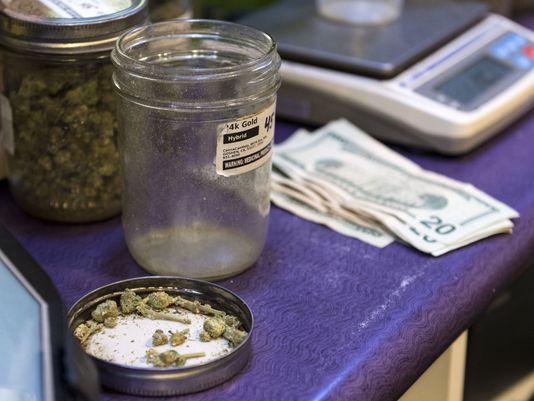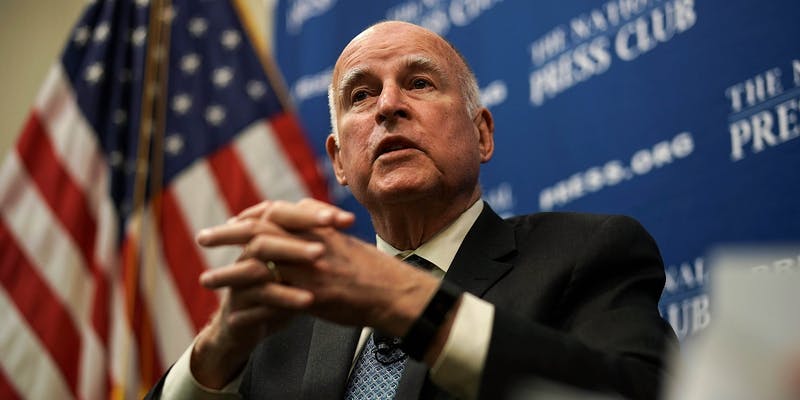Law enforcement agencies from across the state are pushing to stop the practice of “wandering weed.”
The League of California Cities, the California Police Chiefs Association and United Food and the Commercial Workers Western States Council, have urged the Bureau of Cannabis Control to amend proposed regulations that allow marijuana to be delivered anywhere in California.
The proposed regulations by the Bureau of Cannabis Control would permit delivery of recreational cannabis from jurisdictions that have banned such sales. Officials have argued local control played an integral role in the passage of Proposition 64.
Currently, licensed dispensaries can deliver anywhere within the state.
However, the businesses must have a premises for the state to inspect, which doesn’t necessarily have to be a storefront, said Alex Traverso with Bureau of Cannabis Control.
“Hence why most licensed delivery services have what’s called a ‘non-storefront’ retail license,” Traverso added.
There are regulations imposed on businesses that deliver.
- All employees of a retailer must carry a copy of the licensee’s current license and a government-issued identification with a photo of the employee, such as a driver’s license.
- The employee must present that license and identification upon request to state and local law enforcement, employees of regulatory authorities, and other state and local agencies enforcing this division.
- During delivery, the licensee must maintain a physical copy of the delivery request and make it available upon request of the licensing authority and law enforcement officers. The delivery request documentation must comply with state and federal law regarding the protection of confidential medical information.
According to the BCC, a local jurisdiction can’t prevent delivery of marijuana or marijuana products on public roads by a licensed business “acting in compliance” with the law.
By allowing delivery to any jurisdiction, many feel the bureau’s proposed regulations ignore many cities’ local decisions on commercial marijuana.
“It’s unfortunate the Bureau of Cannabis Control made the decision to undermine the authority of local officials,” said David Swing, California Police Chiefs Association president. “The proposed regulations give unrestricted access to the cannabis delivery industry and open the floodgates to a number of public safety risks,”
Proposition 64 allowed county and city jurisdictions to maintain local control over whether or not they would allow marijuana-related businesses within their jurisdictions.
Currently, Valley Pure is the only licensed recreational dispensary in Tulare County. The business does offer a delivery service. Employees are allowed to deliver anywhere within the state.
Tulare County Sheriff Mike Boudreaux said as of right now, deputies have not had any complaints or information about wandering weed in the unincorporated areas of the county.
“However, in the event it becomes an issue, it is addressed in the Tulare County Ordinance Code and is not permitted in the unincorporated areas of Tulare County,” he said.
The city of Visalia was one of many cities in Tulare County that voted not to allow the operation of marijuana-related businesses, which included a ban on marijuana deliveries, said Visalia Police Chief Jason Salazar.
“There are no licensed or approved marijuana businesses operating within the city,” he said. “However, we have had issues related to marijuana businesses operating illicitly and outside of the scope of Prop. 64.”
Salazar said he agrees with the California Police Chiefs Association and The League of California Cities in their opposition to BCC’s proposal.
In addition to restricting local control, some feel allowing these delivery companies to operate also pose a public safety threat.
“As the labor union representing the largest number of workers in the medical cannabis industry, UFCW worked hard to keep communities safe by making sure recreational cannabis is sold with strict safeguards,” said James Araby, executive director of UFCW. “Regulated marijuana dispensaries have tough security, checks for identity and legal age, and strictly licensed workers. If marijuana can be delivered anywhere with virtually no regulation, California will lose these safeguards that protect communities and children.”
The issue was one of many heard during the BCC’s 45-day public comment period on the proposed regulations. It was also the most popular topic, Traverso said.
“We’re in the process of revising our regulations now,” he said. “We have to have final regulations in place — by law — by Dec. 3.”
Credit: www.visaliatimesdelta.com




